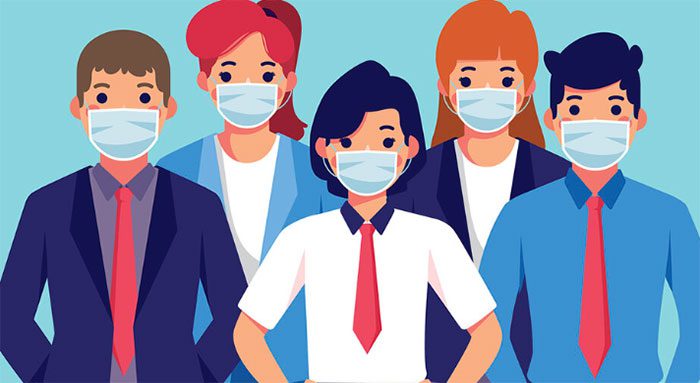Just over a week ago, the CDC announced that people fully vaccinated against COVID-19 do not need to wear masks in most settings.
The announcement marked a milestone in our recovery from the pandemic. But the wide-ranging responses marked a clear sign that we are in a new era of healthcare.
One defined by the rising role of Federalism in healthcare, in which a clear delineation of authority exists across various levels of government.
Upon hearing the announcement by the CDC, not only did different states respond differently, but different cities also issued their own specific, localized mandates. The variability of the responses ranged across different levels of government.
Something we have never seen in healthcare. Before, when a centralized healthcare agency, like the NIH or CDC, made health policy recommendations, they were uniformly accepted.
We never questioned the American Diabetes Association treatment guidelines for diabetes. We never thought to challenge Medicare reimbursements for healthcare services, like a basic outpatient visit.
Yet we now have states and cities challenging the federal government’s recommendations – and issuing their own specific guidelines.
We have state and city health officials claiming to understand the healthcare needs of their local population better than a centralized authority – a seemingly small gesture, but one with large implications for the future of healthcare.
Credibility in healthcare has now transferred from one centralized healthcare institution to a range of localized governments, marking a profound shift in how we think about healthcare.
We normally do not think about diabetes or obesity as anything other than a clinical condition, defined by national guidelines. Sure some cities or local authorities have tried to place a tax on certain unhealthy foods, but those policies were vehemently rejected and often quickly repealed.
But when credibility of central authorities wanes, we begin to think about healthcare differently. Healthcare, at its roots, is medicine, both an art and science that has been studies for eons, arguably since the dawn of civilization. There are certain fundamental truths to medicine – certain symptoms always correlate to certain conditions, certain conditions are always treated the same way.
Healthcare functions largely to implement the principles of medicine. But when we lose trust in medicine, and the healthcare leaders, we begin to distrust healthcare itself.
Consequently, credibility transfers away from the institutions of healthcare, and – as we see today – to more localized forms of government.
The closest analog to this current shift is the debate around smoking cigarettes and abortion. Both seen less in less traditional, medical terms, and more in terms of individual rights – liberties to be balanced against perceived restrictions.
A balance that we acknowledge should be made on a state by state basis.
But what happens if all of healthcare moves in this direction?
Should we have different diabetes guidelines across different states? Will hypertension be treated differently in one part of the country versus another?
The erosion of centralized trust in healthcare has paved the way for unprecedented Federalist polices in healthcare. Policies that change the perception of healthcare – from medical conditions to personal liberties.
We see how cigarette smoking and abortion are uniquely politicized, and subsequently polarized. How scientists and clinical physicians sit alongside religious figures and civil rights attorneys in determining how these two conditions are regulated.
We see how politicized these conditions have become.
Imagine if all of healthcare follows suit. This would be the impact of Federalism on healthcare.
And quite possibly, the most lasting legacy of the pandemic.















